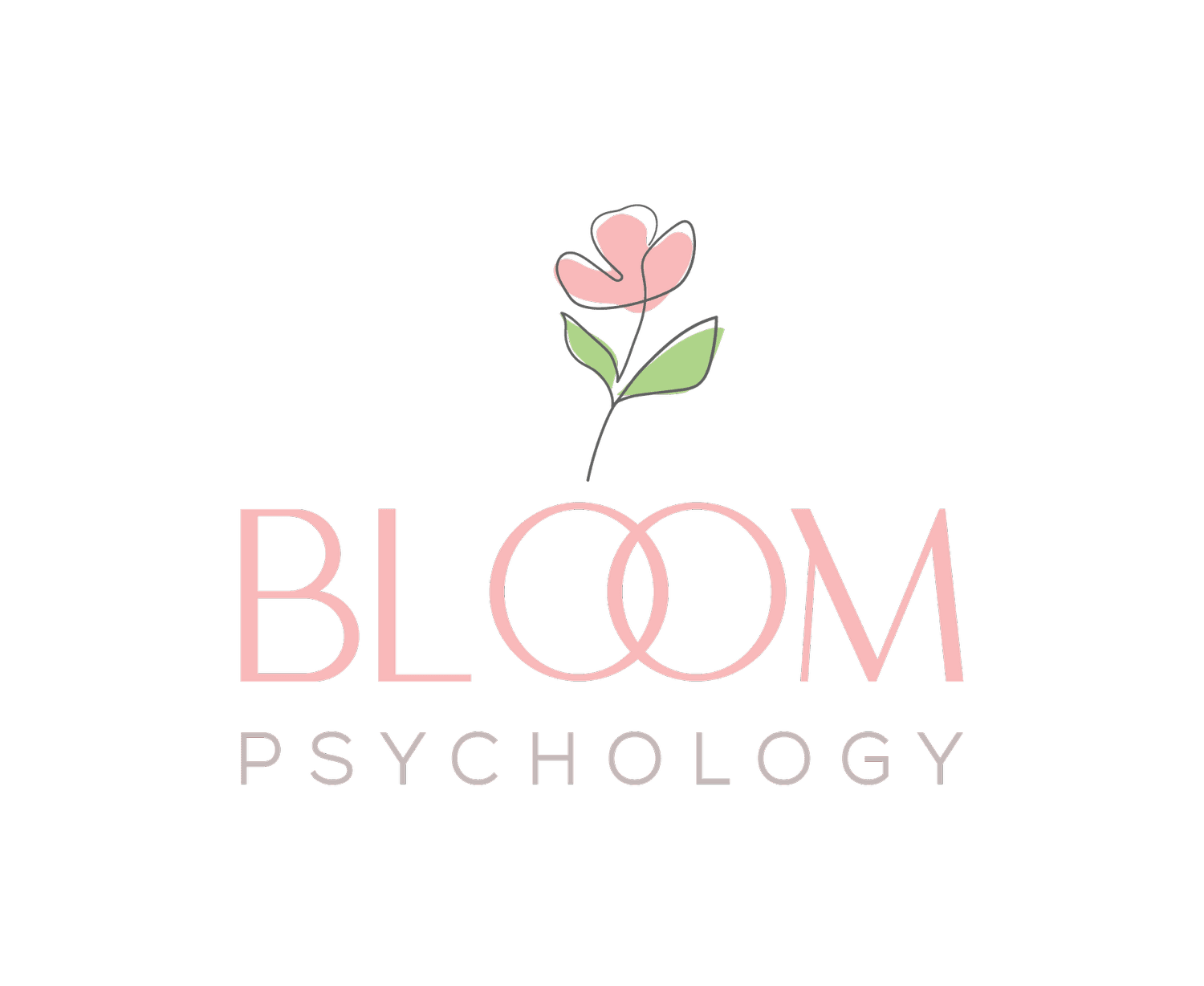Listen to this article
Narrated by Dr. Jana Rundle• 1.6 MB
Keyboard shortcuts: Space or K to play/pause • ← → to seek ±5s
Managing Anxiety in Uncertain Times
A comprehensive, science-backed guide to navigating uncertainty with confidence and building lasting resilience<<
When Uncertainty Triggers Anxiety
You're not alone if any of these scenarios feel familiar:<
Financial Uncertainty
You check your bank account multiple times a day, catastrophizing about job security even when there's no immediate threat. Every unexpected expense triggers a cascade of worst-case scenarios.<<
Health Concerns
Every minor symptom sends you down an internet rabbit hole of terrifying diagnoses. You're hyperaware of your body, convinced something is wrong despite medical reassurance.<<
Relationship Uncertainty
You overanalyze every text message, conversation pause, or change in routine. Your mind races through scenarios about where the relationship is headed, unable to simply be present.<<<
These reactions aren't signs of weakness. According to the Anxiety and Depression Association of America, anxiety disorders affect 40 million adults in the United States—that's 18.1% of the population every year.<
During periods of widespread uncertainty—economic instability, global health crises, political upheaval—those numbers spike even higher. You're experiencing a fundamentally human response to legitimate stress.<
The good news?< While we can't control external circumstances, we can develop powerful skills to manage our anxiety and build genuine resilience.<<
"We can't control external circumstances, but we can develop powerful skills to manage anxiety and build resilience in the face of uncertainty."<<
Anxiety is fundamentally your body's natural response to perceived threats. When facing uncertainty, your mind often fills in the blanks with worst-case scenarios—an evolutionary mechanism that once kept us safe from predators but now gets triggered by tax deadlines and unanswered emails.< Understanding how anxiety shows up in your specific life helps you catch it early, before it spirals. Here's how it typically manifests:< Mild to Moderate:< Worries feel manageable with distraction<< Severe:< Thoughts consume most of your day; can't focus on tasks<<< Mild to Moderate:< Occasional tension or sleep issues<< Severe:< Chronic pain, insomnia, digestive problems<<< Mild to Moderate:< Some avoidance but can still function<< Severe:< Life significantly impacted; major responsibilities neglected<<< Mild to Moderate:< Feelings come and go; can self-soothe<< Severe:< Constant emotional dysregulation; panic attacks<<<<<
What makes uncertainty particularly challenging is that it strikes at our fundamental need for control and predictability. Our brains evolved to detect patterns and predict outcomes—it's a survival mechanism. When we can't predict, our threat-detection system goes into overdrive.< Here are three cognitive biases that amplify anxiety during uncertain times—and how to recognize them in your own thinking:< What it is:< Automatically jumping to the worst possible outcome, treating it as inevitable.< Real-Life Example:< "My partner didn't text back in an hour → They're upset with me → They're going to break up with me → I'll end up alone forever."<< The Reframe:< "There are dozens of reasons they haven't responded. Most are mundane. I'll check in kindly rather than assume the worst."<<< What it is:< Giving disproportionate weight to potential dangers while minimizing positive possibilities.< Real-Life Example:< "If I present this idea at the meeting, they'll definitely think it's stupid. I'll look incompetent and probably get passed over for promotion."<< The Reframe:< "What's the actual evidence? My ideas have been well-received before. Even if this one doesn't land, that's valuable feedback—not a career-ender."<<< What it is:< Seeking information that confirms your fears while ignoring or dismissing reassurance.< Real-Life Example:< "I knew the economy was crashing—this headline proves it!" (while scrolling past five positive economic indicators)<< The Reframe:< "Am I actively looking for evidence that contradicts my fear? What data am I ignoring because it doesn't fit my narrative?"<<<< Recognizing these patterns isn't about blame or shame. It's about understanding yourself better so you can choose more effective responses. Awareness is the first step toward change.<<
<
Research has identified powerful approaches for managing anxiety during uncertain times. These aren't quick fixes—they're skills that strengthen with practice, building your capacity to navigate whatever comes next.<
Your anxious thoughts aren't facts—they're interpretations. Cognitive reframing helps you examine these interpretations with curiosity rather than accepting them at face value.< Write down your biggest worry. Then answer these three questions:< Notice how generating multiple possibilities loosens anxiety's grip.<< Real Example:< Anxious thought:< "If I lose my job, I'll lose my house and end up homeless." Anxiety pulls you into an imagined future full of danger. Mindfulness brings you back to the only moment where you have actual agency: right now.< When you're fully present, anxiety about the future can't take hold. You're giving your nervous system a break from constant threat-scanning, which reduces the physiological stress response.< When anxiety spikes, work through your senses to bring yourself back to the present:< 5 things you can see<< 4 things you can touch<< 3 things you can hear<< 2 things you can smell<< 1 thing you can taste<<< This technique interrupts the anxiety spiral by engaging your sensory system, signaling safety to your brain.<< Set a timer for 3 minutes. Focus entirely on your breath—in through your nose (count to 4), hold (count to 4), out through your mouth (count to 6). When your mind wanders (it will), gently guide it back. That's the practice.<<<<
This isn't about giving up or becoming passive. Acceptance means recognizing what you can and cannot control, then focusing your energy where it can actually make a difference.< The more you try to eliminate all uncertainty, the more anxious you become. Accepting that uncertainty is inevitable actually reduces anxiety because you stop fighting reality.< Draw two columns on paper. Label them:< My actions, my responses, my boundaries, how I spend my time, who I ask for support<< Others' opinions, the economy, global events, past decisions, other people's choices<<< Then ask yourself: Where am I spending most of my mental energy? Can I redirect it to the left column?<< Values-Based Action:< When you can't control outcomes, you can still control whether your actions align with what matters to you. Ask: "If I knew I couldn't fail, what would I do?" Then do that—not for guaranteed success, but because it reflects who you want to be.<<<<<
One of the most confusing aspects of anxiety is distinguishing it from genuine intuition. Both can feel urgent and important, but they come from very different places and deserve different responses.< Here's how to tell them apart:< If you're unsure whether it's anxiety or intuition, give it time. Anxiety intensifies with waiting ("DO SOMETHING NOW!"), while intuition remains steady. Sleep on it, go for a walk, talk to someone you trust. True intuition will still be there when the anxiety quiets down.<<<
When the external world feels unpredictable, creating internal structure becomes even more important. Routines aren't about rigidity—they're about creating anchors of predictability that help your nervous system feel safe.< Think of routines as a framework that provides stability while still allowing for flexibility. Here's how to build anxiety-reducing structure into your day:< Start with gentle movement (stretching, yoga, or a short walk). This signals to your body that you're in control of how the day begins—not external demands or notifications.<< Write down three things you appreciate right now. This isn't toxic positivity—it's training your brain to notice what's working alongside what's uncertain.<< Choose 1-3 priorities for the day. When everything feels urgent, nothing actually is. Narrow your focus to what genuinely matters today.<<< Set reminders (phone or sticky notes) to pause and assess: "How am I feeling right now? What do I need?" Catching anxiety early makes it easier to manage.<< Anxiety lives in your body. Stand up, stretch, do 10 jumping jacks, walk around the block. Physical movement metabolizes stress hormones that build up during anxious periods.<< Text a friend, have lunch with a colleague, call a family member. Social connection is one of the most powerful anxiety buffers we have—use it intentionally.<<< Spend 10 minutes writing down everything on your mind—worries, to-dos, random thoughts. This externalization helps your brain stop ruminating overnight.<< Tense and release each muscle group (feet to face) for 5 seconds each. This releases the physical tension anxiety creates and signals to your nervous system: "We're safe now."<< Lay out clothes, prep breakfast basics, write tomorrow's top 3 priorities. Reducing morning uncertainty reduces morning anxiety—it's that simple.<<<<
"Routines don't need to be rigid. Think of them as a framework that provides stability while still allowing for flexibility—anchors, not chains."<<
When anxiety hits hard, you need immediate relief strategies. Here's a curated toolkit of evidence-based techniques you can use anytime, anywhere:< Inhale for 4 counts, hold for 4, exhale for 4, hold for 4. Repeat 4 times. This activates your parasympathetic nervous system.<< Splash cold water on your face or hold ice cubes in your hands. The sudden temperature change interrupts the panic response.<< Say out loud: "I'm feeling anxious right now." Research shows that labeling emotions reduces their intensity by engaging your prefrontal cortex.<< Do 20 jumping jacks, run in place for 60 seconds, or go for a brisk walk. Movement metabolizes stress hormones flooding your system.<< Name 5 things you see, 4 you can touch, 3 you hear, 2 you smell, 1 you taste. This grounds you in the present moment.<< Tap alternating shoulders (left, right, left, right) while taking slow breaths. This mimics EMDR therapy and calms your nervous system.<< Humming stimulates the vagus nerve, which regulates your body's relaxation response. Sing a favorite song out loud if you can.<< Keep a smooth stone, stress ball, or textured fabric with you. Focus all your attention on how it feels in your hand.<< Say: "This is a moment of suffering. Suffering is part of life. May I be kind to myself." Research shows self-compassion reduces anxiety.<< Reach out to someone who understands. Social connection is one of the fastest ways to regulate your nervous system.<<<<
Pin this anxiety first aid kit for instant relief when you need it most<<
Self-help strategies are powerful, but they're not always enough. Anxiety becomes a clinical concern when it significantly interferes with your daily functioning, relationships, or quality of life.< Consider reaching out to a mental health professional if you answer "yes" to three or more of these questions:< Has your anxiety persisted for more than 6 months despite self-help efforts?<< Are you avoiding important activities (work, social events, responsibilities) because of anxiety?<< Is anxiety impacting your relationships in meaningful ways?<< Are you experiencing panic attacks or severe physical symptoms?<< Are you using substances (alcohol, drugs) to cope with anxiety?<< Do you feel hopeless or have thoughts of self-harm?<<< If you answered yes to question 6:< Please reach out for help immediately. Call the National Suicide Prevention Lifeline at 988 or text "HELLO" to 741741 to reach the Crisis Text Line.<<< Not all therapy is created equal when it comes to anxiety. Research has identified several evidence-based approaches with strong track records:< Best for:< Generalized anxiety, panic disorder, social anxiety< CBT helps you identify and change unhelpful thought patterns and behaviors that fuel anxiety. It's structured, time-limited (typically 12-20 sessions), and highly effective.<< Best for:< Chronic anxiety, uncertainty intolerance< ACT teaches you to accept anxious thoughts and feelings rather than fighting them, while taking action aligned with your values despite discomfort.<< Best for:< Trauma-based anxiety, PTSD< EMDR uses bilateral stimulation (eye movements, tapping) to help process traumatic memories and reduce their emotional charge.<< Best for:< OCD, specific phobias, health anxiety< ERP gradually exposes you to feared situations while preventing compulsive responses. It's the gold standard for OCD treatment.<<< Look for licensed professionals (LCSW, LMFT, PsyD, PhD) who specialize in anxiety disorders. Don't hesitate to "shop around"—finding the right fit matters more than finding the perfect technique. Most therapists offer free consultation calls to see if you're a good match.<<<
Here's something most anxiety guides won't tell you: uncertainty isn't just something to endure—it can be a catalyst for growth, creativity, and resilience.< When everything is predictable, we don't grow. We don't discover new strengths, develop new skills, or learn what we're truly capable of. Uncertainty forces us to expand beyond our comfort zones, and that expansion—though uncomfortable—is where transformation happens.< Instead of asking "What if everything goes wrong?" try asking:< This isn't about denying real challenges or pretending everything is fine. It's about expanding your view to include possibility alongside difficulty.<< You've made it through 100% of the uncertain times in your life so far. You have evidence that you can handle hard things. This time is no different.<<
"You've made it through 100% of the uncertain times in your life so far. You have evidence that you can handle hard things."<<
At Bloom Psychology, we specialize in helping individuals navigate anxiety during life's most challenging transitions. Our therapists are trained in evidence-based approaches including CBT, ACT, and EMDR.< One-on-one sessions tailored to your specific anxiety patterns and goals<< Connect with others navigating similar challenges in a safe, guided environment<< Evidence-based tools and exercises you can work through at your own pace<<< Save This Complete Anxiety Management Guide< Pin this comprehensive resource to your mental health board so you can return to these evidence-based strategies whenever anxiety feels overwhelming.<<
Common signs include constant worrying about baby's safety, racing thoughts, difficulty sleeping even when baby sleeps, physical symptoms like rapid heartbeat, and avoiding situations due to fear.<< Yes. Postpartum anxiety can occur independently or alongside postpartum depression. Many women experience anxiety as the primary concern.<< Treatment includes therapy (especially CBT), support groups, stress management techniques, and sometimes medication. Most women see improvement within 8-12 weeks of starting treatment.<<<
< Join hundreds of moms receiving monthly mental health insights, evidence-based tips, and new articles. No spam. Unsubscribe anytime. Jana Rundle Licensed Clinical Psychologist You scrolled through Instagram and saw another mother with matching outfits, a clean house, and a baby who actually naps. Now you're lying awake wondering what you're doing wrong. Here's the truth about mom guilt. Do you seem like you have it all together as a new mom? Learn the signs of high-functioning anxiety, why successful women often go undiagnosed, and why you deserve support even if you look "fine." Is your new mom anxiety normal or something more? Learn the 7 clear signs it's time to get professional help for postpartum anxiety. Take the first step with a free 15-minute consultation.How Anxiety Manifests: Recognizing Your Patterns
Mental Symptoms
Physical Symptoms
Behavioral Symptoms
Emotional Symptoms
The Psychology Behind Uncertainty: Understanding Your Brain's Anxiety Patterns
Catastrophizing
Probability Overestimation
Confirmation Bias
3 Evidence-Based Strategies for Managing Uncertainty Anxiety
Cognitive Reframing: Challenge Anxious Thoughts
The Core Technique:
Try This Tonight:
Reframe:< "If I lost my job, I'd have severance, unemployment benefits, and savings to cover 3-4 months. I have marketable skills and a network. It would be stressful, but I'd have time to find something else. I might even find a better fit."<<<<
Mindfulness and Present-Moment Awareness
Why This Works:
The 5-4-3-2-1 Grounding Technique
Start Small: 3-Minute Practice
Acceptance: Making Peace with Uncertainty
The Paradox of Control:
Focus Your Energy Exercise
Within My Control
Outside My Control
Anxiety vs. Intuition: How to Tell the Difference
Anxiety Feels Like...
<Intuition Feels Like...
<Anxiety Says...
<Intuition Says...
<<When in Doubt, Wait
Building Structure in Uncertain Times
Morning Routine: Set Your Baseline
Before Reaching for Your Phone
Practice Gratitude
Set Realistic Intentions
Throughout the Day: Maintain Your Center
Regular Anxiety Check-Ins
Movement Breaks
Connection Points
Evening Wind-Down: Signal Safety
Brain Dump Journaling
Progressive Muscle Relaxation
Prepare for Tomorrow
Your Anxiety First Aid Kit: 10 Tools for When Crisis Strikes
Box Breathing
Cold Water Splash
Name It to Tame It
Physical Movement
The "54321" Technique
Bilateral Stimulation
Hum or Sing
Grounding Objects
Self-Compassion Statement
Call Your Support Person
When to Seek Professional Help
Therapy Approaches That Work for Anxiety
Cognitive Behavioral Therapy (CBT)
Acceptance and Commitment Therapy (ACT)
Eye Movement Desensitization and Reprocessing (EMDR)
Exposure and Response Prevention (ERP)
Finding the Right Therapist
Reframing Uncertainty as an Opportunity
Try This Mental Shift:
Ready to Take the Next Step?
Individual Therapy
Group Support
Self-Paced Courses
Frequently Asked Questions
What are the signs of postpartum anxiety?
Can anxiety occur without depression after giving birth?
How is postpartum anxiety treated?
Get More Like This

Related Articles

Mom Guilt: Why You Feel Like You're Failing Even When You're Not

High-Functioning Postpartum Anxiety: Looking Fine While Struggling Inside

New Mom Anxiety: 7 Signs It's Time to Talk to Someone
Ready to Begin Your Healing Journey?

